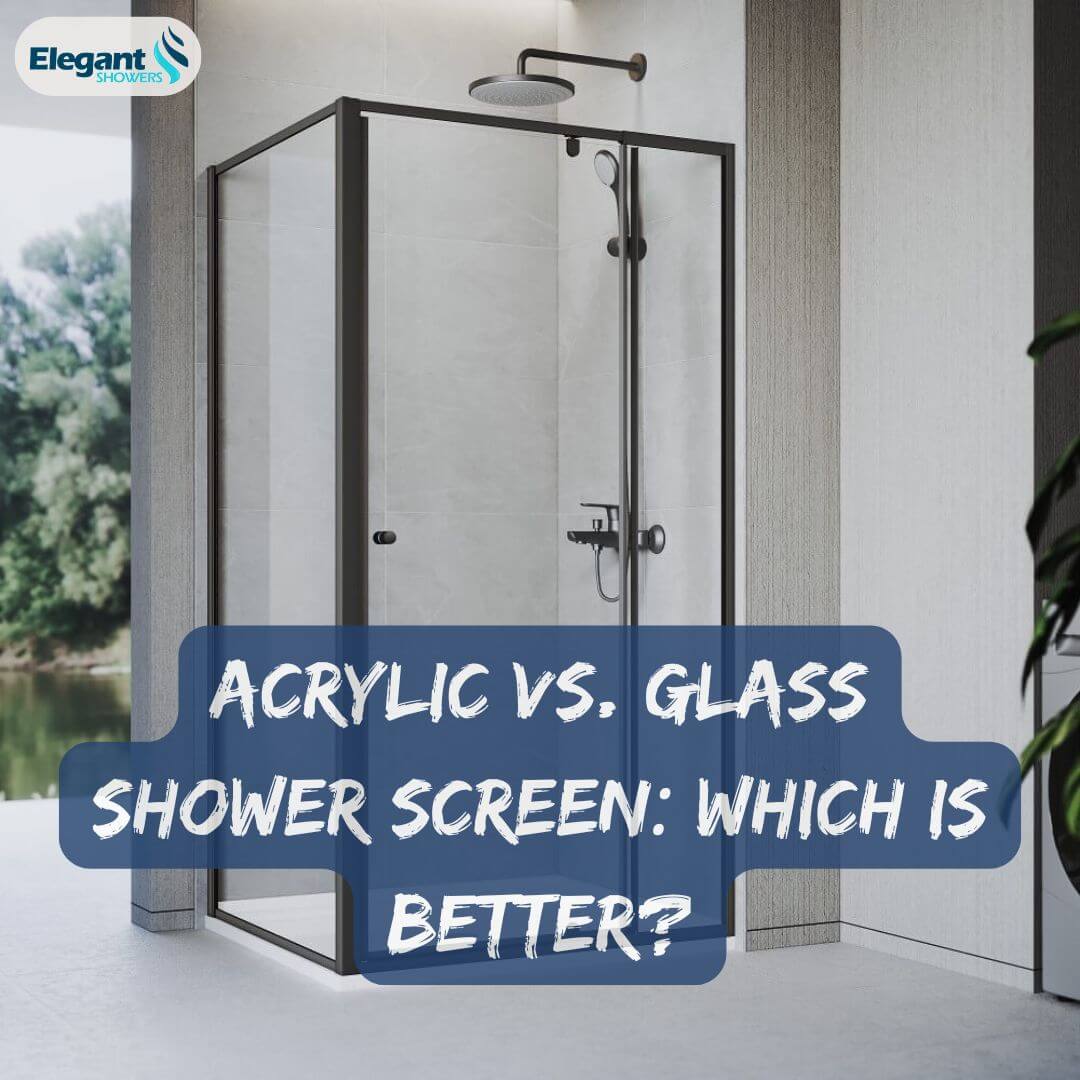Shower screens serve as both a functional barrier to keep water contained and an element of modern aesthetic in bathrooms. Regular upkeep is not just about maintaining their gleaming appearance; it’s essential for prolonging the life of the screens. By dedicating attention to simple daily maintenance routines, we can ensure our shower screens remain clear, clean, and structurally sound, safeguarding the serenity of our bathroom spaces.
Shower Screen Care for Acrylic and Glass
Shower screens, whether crafted from acrylic or glass, require specific care to keep them looking their best. For acrylic screens, it's vital to use a mild detergent; harsh chemicals can cause damage. Always opt for a soft cloth or sponge to gently clean the surface, preventing scratches that could cloud its transparency. It’s also wise to avoid abrasive pads that can leave permanent marks.
When it comes to glass shower screens,hard water scale and soap scum are common foes. A squeegee used after each shower helps prevent buildup, while a mixture of white vinegar and water can be an effective natural cleaner for tackling tougher stains. For maintenance that feels almost professional, use microfiber cloths—they don't just push dirt around but actually lift and collect particles, keeping your glass pristine without leaving any lint or streaks behind. Regular care not only maintains clarity but also extends the life of your shower screen.
Hardware Maintenance of Shower Screen
Care Slides and Hinges
The metal components of your shower screen—slides and hinges—require regular attention to keep them functioning smoothly. Clean these parts with a soft, damp cloth to prevent the accumulation of grime. Post-cleaning, apply a silicone-based lubricant to any moving parts. This will ensure they continue to glide effortlessly without any squeaking or stiffness, and it also repels water, which can help reduce rust formation.
Remediat Rust
Rust can be the bane of bathroom fixtures, but early intervention is key. If rust spots do appear, tackle them immediately with a gentle rust remover suitable for bathroom use. Apply the solution as directed on the product label, then rinse thoroughly. To prevent future rust, keep the metal parts dry, and consider applying a clear coat of lacquer designed for metal protection in moisture-rich environments. Regular checks and quick responses are crucial for maintaining the integrity and appearance of your shower screen hardware.
Shower Screen Mold Prevention Tactics
Keep Screens Spotless
Keeping your shower screen dry is a key defense against mold. After use, take a few moments to squeegee off excess water; this simple action minimizes water spots and discourages mold growth. Additionally, leave the door or curtain open to promote airflow, speeding up the drying process and reducing moisture accumulation.
Halting Mold in Its Tracks
To prevent mold from taking hold, maintain good ventilation in the bathroom at all times. Use an exhaust fan during showers and for at least 30 minutes afterward, or crack open a window to let fresh air circulate. For ongoing protection, treat your shower screen with a daily anti-mold spray – either a commercial option or a homemade solution of equal parts white vinegar and water. Spray lightly and let it work its magic; there's no need to rinse. Remember, proactive moisture management is your best tool for keeping mold at bay on your shower screens.
Anti-Fouling Strategies for Shower Screens
Identify and Eradicat Stains
Stains on shower screens can be a diverse bunch, commonly ranging from soap scum to hard water marks. Soap scum can be dissolved with a solution of dish soap and warm water, while hard water stains respond well to treatments with vinegar or specialized lime scale removers. When dealing with these substances, use a non-abrasive cloth to apply your chosen cleaner—abrasive tools can scratch the screen, creating niches where stains can take hold.
Defend Against Dirt
Preventing stains starts with routine care. Wiping down the shower screen daily with a squeegee or soft cloth can drastically reduce stain build-up. If possible, spray a diluted vinegar solution on the screen after each shower as a preventative measure—it will help break down residues before they solidify into stains. And don't forget to ventilate; keeping air moving dries out water and reduces mineral deposit formation.
Shower Screen Care Don’ts
Here are some common pitfalls and how to sidestep them:
- Using Harsh Chemicals: It might be tempting to use bleach or other strong chemicals to clean your shower screen, but these can degrade seals and damage the screen’s finish. Stick to mild detergents and natural cleaners like vinegar.
- Neglecting Regular Cleanings: Allowing soap scum and water spots to sit on your screen can lead to more labor-intensive cleaning later on. Consistent, gentle cleaning is easier on the material and less time-consuming overall.
- Scrubbing with Abrasive Tools: Steel wool pads or rough brushes may seem like they’d do a good job, but they can scratch glass and acrylic surfaces. Instead, use a soft microfiber cloth or a non-abrasive sponge.
- Ignoring Water Hardness: If you live in an area with hard water, it may be worth investing in a water softener. Hard water can lead to mineral buildup that's tough to clean off.
- Forget about Ventilation: Moisture from showers increases humidity levels, which can exacerbate mold growth. Always use an exhaust fan or open a window to help moisture escape.
Clean Shower Screens with Natural Cleaners
Using natural cleaning solutions not only benefits the environment but can also be gentle on your shower screens and fixtures.
- Vinegar is a powerhouse against soap scum and water spots. Mix equal parts of white vinegar and water in a spray bottle. Spray it on the shower screen, let it sit for a few minutes, then wipe clean with a soft cloth.
- For tougher grime, make a paste using baking soda and a little water. Apply this to stubborn stains with a soft sponge, gently scrub, and rinse away with warm water.
- Lemon juice has natural acid that can break down dirt and hard water deposits. Cut a lemon in half and rub it directly onto the affected areas, or mix it with water for a sprayable solution.
- A surprising cleaner, cornstarch, can be used to polish glass. Create a slurry of cornstarch and water, apply to the glass with a soft cloth, and rinse off for a streak-free shine.
- For those who prefer a fragrant touch, add a few drops of your favorite essential oil like tea tree or lavender to your homemade cleaners for their additional antimicrobial properties and a pleasant scent.
While these natural options are safer for both the environment and many surfaces in your home, always perform a spot test in an inconspicuous area before applying any new cleaner to ensure compatibility with your specific shower screen material.






